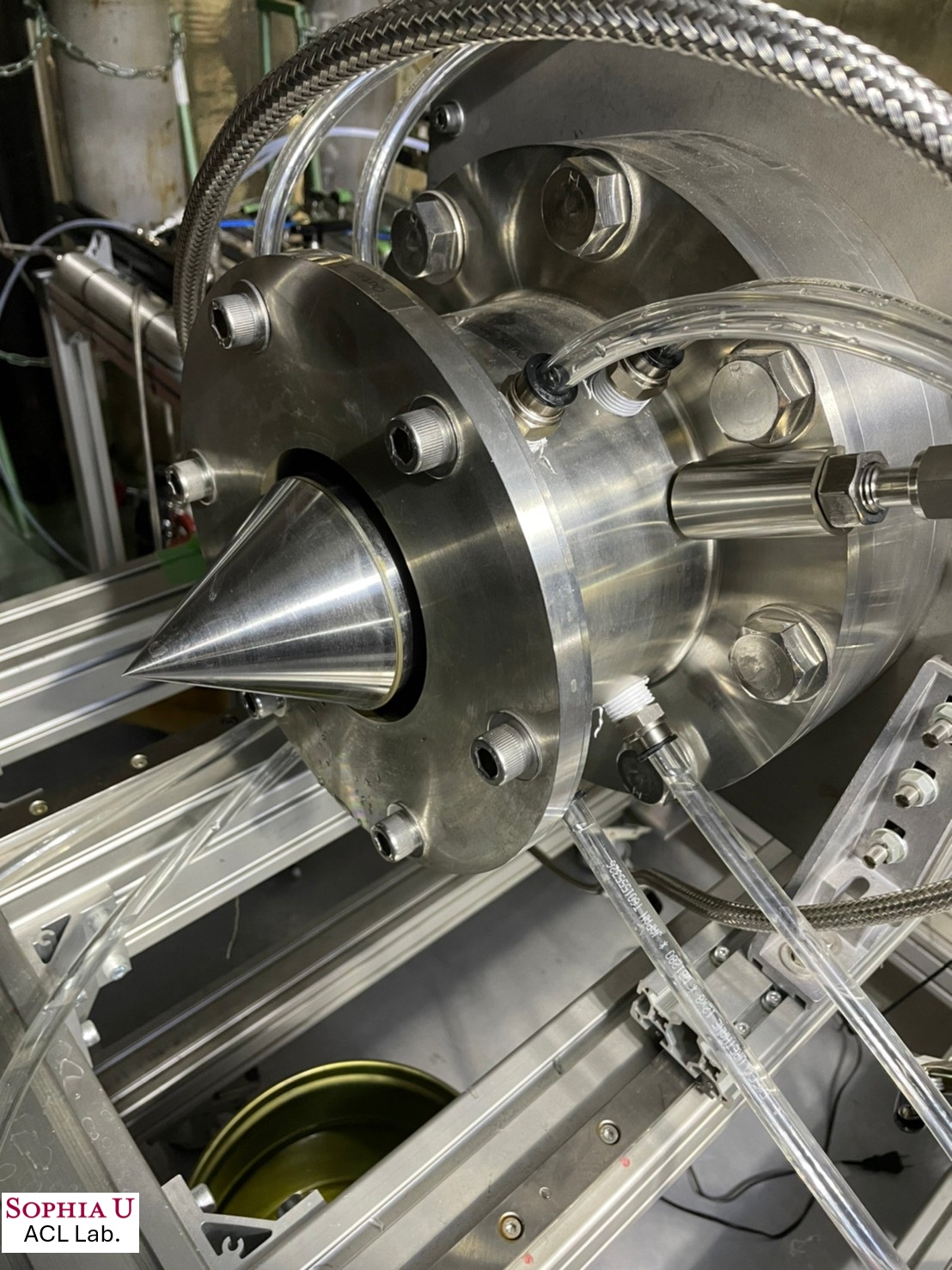

Overview
Rotating Detonation Engines (RDEs) are pressure-gain propulsion systems that sustain a continuous detonation wave traveling azimuthally in an annular combustor. By leveraging detonation rather than deflagration, RDEs can improve thermodynamic efficiency over conventional combustors.
We investigate wave stability, injection strategies, and wall interactions through hydrogen-oxygen experiments, high-speed diagnostics, and custom CFD development, aligned with our lab’s broader research goals.
RDE
Pressure-gain H₂/O₂